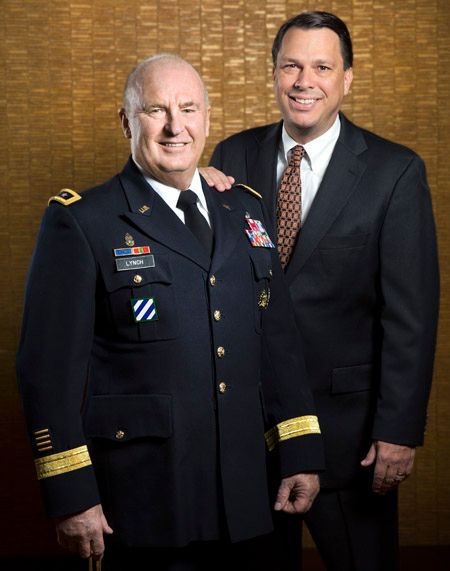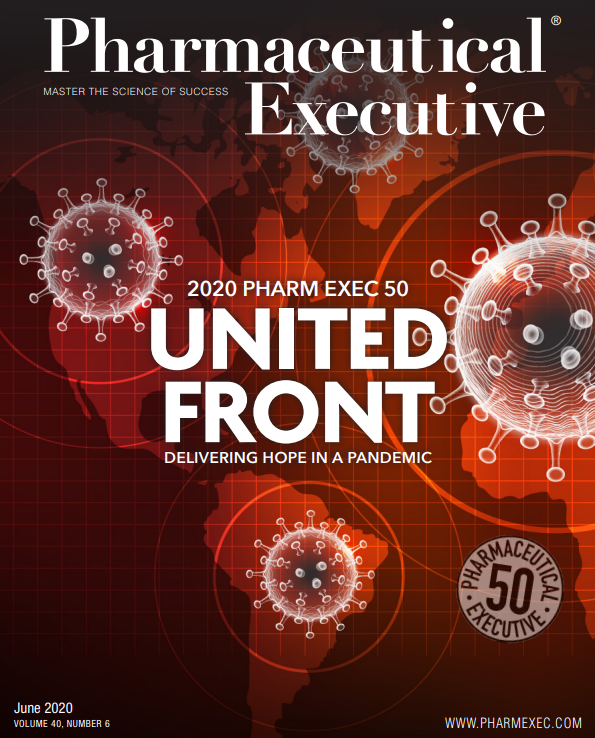Adaptive Leadership Through the Pandemic
Pharmaceutical Executive
A major theme permeating our June issue is pharma's reputation issue and how the COVID-19 crisis should be driving new ways executives lead their companies now-and on the other side.
Lisa Henderson

This month is our Annual Pharma 50 issue, where we list, with our data partner EvaluatePharma, the top 50 companies according to drug sales for the past year. This is a big deal and, generally, is the all-time, most-read article on our website each year.

Pharmaceutical company success by brand revenue is a milestone, don’t get me wrong, and this year it will still garner massive amounts of attention. But it’s June. 2020. As we creep out of the pandemic. So this month, we also address our industry in regard to agile leadership and how the COVID-19 crisis should be influencing the ways executives lead their companies and the industry now-and on the other side.
The last time I heard Lieutenant General (Ret) Rick Lynch, US Army, speak was at an “Adapt or Die” meeting held by Bob Jansen, CEO of Zensights and a Pharmaceutical Executive Editorial Advisory Board member, over two years ago (see here).
Rick Lynch and Bob Jansen

At these meetings, Jansen brings together pharma and healthcare executives to learn what leadership looks like from inside those industries, as well as outside from Lynch’s formidable military experience and masterful viewpoint. I had the opportunity to listen again to Lynch in late May, when Jansen brought together a large group-virtually, of course-to discuss leadership through the COVID-19 health crisis.
Lynch began with the current state of affairs in our lives…it’s volatile, uncertain, and ambiguous. The task for agile and adaptive leaders is to respond appropriately in three manageable phases. The first phase is survival, while sustaining some level of forward movement; the second is recovery; and the third, preparation.
For the first phase, Lynch stressed to the leaders to look for the opportunities and not the obstacles. “Master the technology. We all are on Zoom now. Understand the technology and take steps to use it better,” he said. Lynch noted that the crisis is also an opportunity to learn about other views (read a book, suggests Lynch) or take time to think, since you aren’t going from meeting to meeting. And, most of all, spend this found time with your families.
Recovery is the next stage, and one that many have started. Some CEOs present at a recent roundtable that Pharmaceutical Executive hosted on behalf of our parent company, MJH Life Sciences, are looking at their operations with a new eye toward changing the balance of work-from-home and office schedules or reducing their commercial real estate footprint. They are doing exactly what Lynch suggests: visualize the future, what it looks like, and how you get there.
The final stage is preparation. Once the crisis has passed and the smoke has cleared, said Lynch, you have to prepare to preclude it from happening again. “Capture your lessons learned and put them into practice. What worked, what didn’t work,” he advised. “Because it will happen again.”

Part of Lynch and Jansen’s mission, established when they first met, was figuring out how pharma could repair its sagging reputation and public perception, much like the military achieved post-Vietnam. The answer was adaptive leadership. Right now, many pharma leaders sense this is a time that could change the public’s negative image of “big pharma.” See our Senior Editor Elaine Quilici’s article, where she touches on the emerging sentiments around just that. Our Finance Columnist Barbara Ryan also addresses the reputation issue, asking pharma and biotech leaders to take the reins.
Lynch said, “There is a great opportunity to be the heroes of the world, with the right therapy, the right vaccine. But everyone is looking at you with suspect. Take advantage of this moment, but you must do it with integrity and transparency.”
He noted that the public is closely watching how pharma invests in its resources. Is it appropriate or not? Are companies saying one thing, but doing another? Are you not only doing the right things, but doing things right?
Now is the time to check-in and ensure your vision, leadership, and moral compass are aligned.
Lisa Henderson is Editor-in-Chief of Pharm Exec. She can be reached at lhenderson@mjhlifesciences.com. Follow Lisa on Twitter: @trialsonline

Navigating Distrust: Pharma in the Age of Social Media
February 18th 2025Ian Baer, Founder and CEO of Sooth, discusses how the growing distrust in social media will impact industry marketing strategies and the relationships between pharmaceutical companies and the patients they aim to serve. He also explains dark social, how to combat misinformation, closing the trust gap, and more.